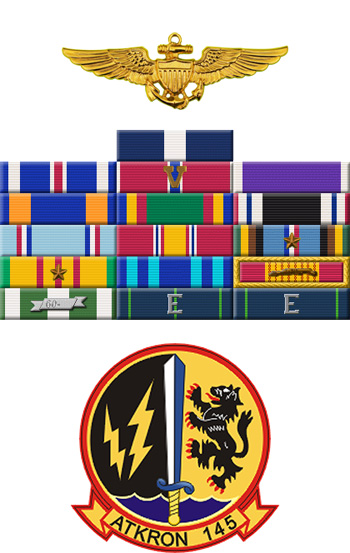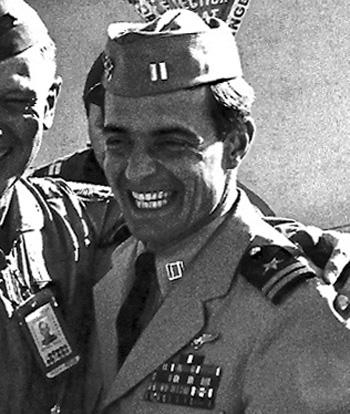
|
Dieter Dengler |
 |
|||
| Rank, Service | ||||
Lieutenant O-3, U.S. Navy |
||||
| Veteran of: | ||||
|
||||
| Tribute: | ||||
Dieter Dengler was born in Wildberg, Germany, on May 22, 1938. He immigrated to the United States in 1956 and enlisted in the U.S. Air Force on June 7, 1957. After completing basic training, he served as a vehicle operator with the 31st Transportation Squadron at Turner AFB, Georgia, from September 1957 to May 1958, and then with the 3700th Transportation Squadron at Lackland AFB, Texas, from May 1958 until he left active duty on January 20, 1961. Dengler was honorably discharged from the Air Force Reserve on April 11, 1963, and then entered the Naval Aviation Cadet program on April 12, 1963. He was commissioned an Ensign and was designated a Naval Aviator at NAS Corpus Christi, Texas, on April 3, 1964, and then completed A-1 Skyraider Replacement Air Group training with VA-122 at NAS Lemoore, California, in January 1965. His first assignment was as an A-1 pilot with VA-145 at NAS Miramar, California, from January 1965 until he deployed with the squadron to Southeast Asia aboard the aircraft carrier USS Ranger (CVA-61) in January 1966. LT Denger was forced to crash his aircraft in Laos during a combat mission on February 1, 1966, and he was taken as a Prisoner of War by the Pathet Lao on February 2, 1966. After spending 5 months in captivity, LT Dengler managed to escape from his captors on June 30, 1966, and made his way to American forces on July 20, 1966. After recovering from his injuries, he served with the Commander Naval Air Forces Pacific from November 1966 to May 1967, and then with VC-7 at NAS San Diego, California, from May 1967 until he left active duty and entered the Naval Reserve on February 1, 1968. He left the Naval Reserve on February 16, 1978, and worked as a civilian test pilot for many years. Dieter Dengler died on February 7, 2001, and was buried at Arlington National Cemetery. His Navy Cross Citation reads: For extraordinary heroism during an extremely daring escape from a prisoner-of-war stockade on 30 June 1966. Playing a key role in planning, preparing for, and developing an escape and evasion operation involving several fellow prisoners and himself, Lieutenant (jg) Dengler, keenly aware of the hazardous nature of the escape attempt, boldly initiated the operation and contributed in large measure to its success. When an unplanned situation developed while the escape operation was being executed, he reacted with the highest degree of valor and gallantry. Through his courageous and inspiring fighting spirit, Lieutenant (jg) Dengler upheld the highest traditions of the United States Naval Service. |
||||
|
||||

